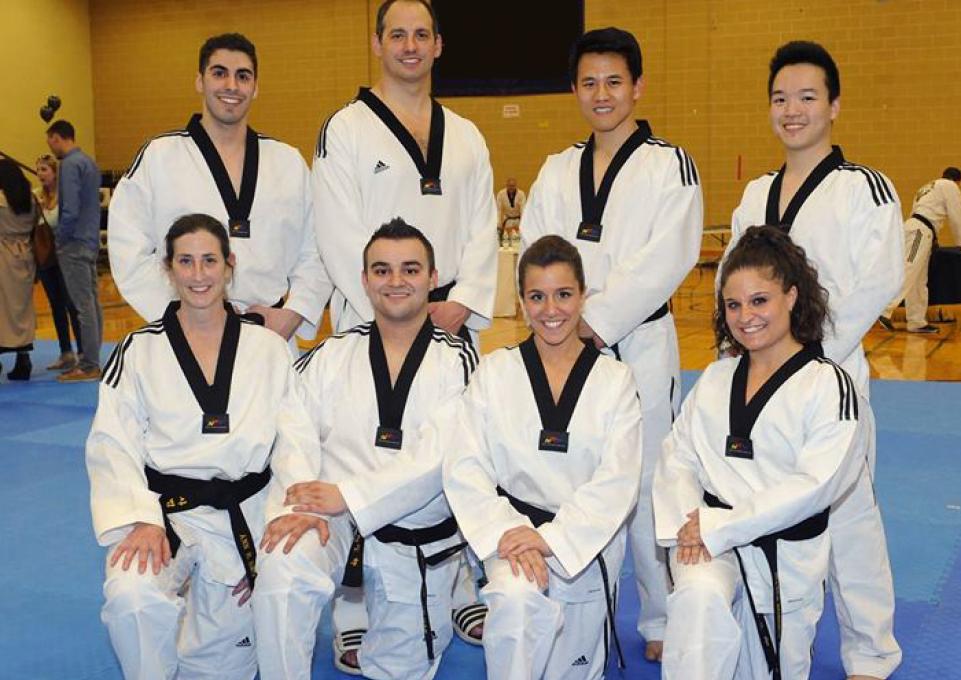
Soon after Ann Emo (pictured in first row, far left), chair and associate professor of theater, enrolled her then six-year-old son in training at Master Chong’s World Class Tae Kwon Do, its executive director, Master Michael Mertens, asked when she was planning to sign up.
She took his nudge, signed up, and was instantly hooked. Subsequently, the rest of her family joined as well.
“I realized how much art is part of the practice,” she said. “It includes attention to detail and a sense of creativity.”
Fifteen years later, Emo has earned her fourth-degree black belt in tae kwon do and the title of master. On May 14, she completed the intensive 2016 master's test along with five other candidates for this degree, as well as two masters who continued training to receive their fifth- and sixth-degrees.
“To put into academic context, the master's test is the equivalent of defending your dissertation,” she explained. “You go through so many years of education, dedication, and hard work. Then you’re presenting all that research, refinement, and mastery of the subject. We also know that at this point the door opens to deeper study and training. ”
Interestingly, two recent Buffalo State graduates and one current student also passed the test. They are Bianca Roberts, ’14, Alex Chapman, ’15, and Dominica Roberts, who is slated to graduate in May 2017.
During the test, which lasted about an hour, the participants had to demonstrate combinations of stances, kicks and hand movements known as poomse, a sword routine (kumdo), a self-defense routine, full-contact sparring, and multiple board-breaking techniques using both hands and feet.
At each level, tae kwon do students must learn a number of skills and are progressively tested. Once practitioners reach the fourth-degree black belt level, they are considered master. Black belts can progress up to the ninth degree.
“Tae kwon do is good exercise with a purpose. You are working with others, but accomplishments are individual,” said Emo, who started training at age 40, and having just passed the 55-year mark, trains and instructs several hours per week.
“I’m very proud that the next youngest person testing with us is almost a decade younger than I am. Most of those testing for master are in their 20s. I was nervous that I would not be able to keep up physically.”
But committing to such a discipline helps keeps you young, spiritually and physically engaged, she noted.
“When training, this all you can really think about. It’s a good way to put perspective on the rest of your busy day and stay healthy.”
Mastering tae kwon do also has helped her become a better educator.
“I have learned that to be an exceptional teacher, you must be an exceptional student,” she said. “Through the years, this practice has taught me how to be a good student by self-analysis and exhibiting pride and respect for myself and others.”
